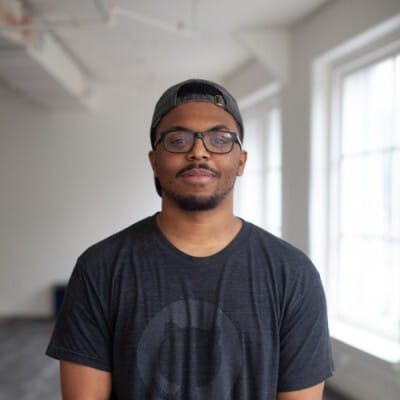🌟 Editor's Note: Recapping the AI landscape from 09/16/25 - 09/22/25.
🎇✅ Welcoming Thoughts
Welcome to the 11th edition of NoahonAI.
What’s included: company moves, a weekly winner, AI industry impacts, practical use cases, and more.
Lots of partnerships and new investments this week.
China continues to keep NVIDIA out of the top spot.
I’ve gotten busy with consulting, but will get back to doing interviews starting this afternoon.
For now, we have another developer throwback to Week 1, an interview I still reference when coding!
Very interesting report from Anthropic this week on Claude usage in the workplace. Ohio is 36/50 across the US.
CRAZY AI NEWS to start us off this week.
Meta’s big event was a bit of a letdown in terms of hardware.
Weird shakeup in the company rankings after #1. Good weeks across the board.
Waiting for the 1st cool AI/AR wearable aside from glasses.
Let’s get started—plenty to cover this week.
👑 This Week’s Winner: OpenAI // ChatGPT
BLOCKBUSTER DEAL IN AI! Huge news came Monday with the announcement of a $100B investment from NVIDIA into OpenAI. NVIDIA will invest the money over time, essentially tied to KPI’s related to OpenAI’s growth/need for compute. The deal, which was announced with a letter of intent and is not yet completely formalized, includes 10 gigawatts of compute from NVIDIA systems.
For scale, the Hoover Dam produces about 2 GW of electricity/compute at full throttle. The first gigawatt will go live in 2026 on NVIDIA’s new “Vera Rubin” platform. In addition to this monumental deal:
OpenAI rolled out parental controls: This includes usage restrictions, and emergency self-harm protocols. They are making it clear that safety and mental health is more important than complete privacy for users under the age of 18.
Age-prediction AI: OpenAI is building an age-detecting system to route under-18s into safer ChatGPT experiences by default.
Humanoid Robots: OpenAI is continuing its push into robotics, ramping up hiring and focus into the foreseeable future.
If they’re able to continue with the dominance of ChatGPT, complete this partnership with NVIDIA, and even co-lead the charge into humanoid robotics, OpenAI may become the most valuable company in human history.

From Top to Bottom: Open AI, Google Gemini, xAI, Meta AI, Anthropic, NVIDIA.
⬇️ The Rest of the Field
Who’s moving, who’s stalling, and who’s climbing: Ordered by production this week.
🔴 xAI // Grok
Benchmark Win: xAI’s Grok 4 recently secured the top spot on the ARC-AGI leaderboard, outperforming major competitors ChatGPT and Gemini. Grok 4 achieved a score of 15.9%, compared to the next best models which were in the ~8% range. ARC Measures process AND results.
Launch of Grok 4 Fast: A model variant designed for greater efficiency. It uses 40% fewer "thinking tokens" to Grok 4, a 98% reduction in cost (for xAI), and has a 2 million-token context window.
Elon’s Focus: Tesla’s recently proposed a massive compensation package for Elon Musk, worth up to $1 trillion, to incentivize him to achieve ambitious milestones over the next decade. Elon also doubled down on his xAI focus. Insane number, but could actually be worth it if Elon can keep his focus on physics, AI, and robotics.
⚪️ NVIDIA
China Ban: China has banned its tech firms from buying Nvidia’s newest AI chips, following U.S. export restrictions. Unclear if the ban includes past models as well. Don’t believe this is final, but certainly a situation to monitor.
$5B into Intel: Nvidia has agreed to take a $5 billion stake in Intel, becoming one of its largest shareholders. This comes just after the U.S. government took a stake in the company. Seems small compared to OpenAI deal.
$2B investment into UK firms: One of the marquee deals is a proposed $500M in Wayve, a U.K. autonomous vehicle startup. Other UK companies being looked at include startups in AI, cloud, and fintech.
🔵 Meta // Meta AI
AI-powered Smart Glasses: At Meta’s annual Connect event, they unveiled Ray-Ban glasses with built-in display and EMG wristband for hands-free scrolling, messaging, and navigation. Meta also introduced Oakley sports glasses with action-ready cameras and fitness integrations. Cool, but underwhelming.
Meta Approved for U.S. Govt. Agency Use
Meta’s LLaMA model has been added to the U.S. General Services Administration’s (GSA) list of approved AI tools, meaning federal agencies can now use it knowing it meets required legal and security standards.$20B cloud talks with Oracle: Reports indicate Meta is in advanced negotiations with Oracle over a multiyear cloud infrastructure deal potentially worth $20 billion. Deals of this size becoming normal in AI space.
🟣 Google // Gemini
Gemini Chrome: Google has begun embedding Gemini AI directly into the Chrome browser for U.S. users. This integration allows users to get help right in the browser, summarize content across tabs, clarify text, pull in context from the web, and more. AI browsers on their way to mainstream.
Gemini TV: Google is rolling out Gemini to Google TV, letting users chat with their TV to discover shows, get summaries, or ask questions beyond basic voice commands. AI is becoming prevalent across all systems.
Strategic partnership with PayPal: Google and PayPal have entered a multi-year strategic partnership to bring more AI-powered shopping & payment experiences across their platforms. Lots to this deal - check out the link.
🟠 Anthropic // Claude
Claude in the App Store: Claude can now be used in Xcode 26 via the “Coding Assistant” feature. This means it can be used directly to help develop IOS apps. Good all around.
Pitch to D.C. Policymakers: CEO Dario Amodei warned U.S. policymakers about China’s rapid AI advances, highlighting risks from chip exports and tech transfers; urged stronger regulations to prevent China from outpacing U.S. safeguards.
Claude is Training Claude: Amodei also revealed that Claude is becoming increasingly active in training and teaching its newer models. Inching closer to AGI. The more AI can train AI, the faster advancements become.
📢 Impact Industries 🚑
Advertising // AI Factory
Yum! Brands, parent of Taco Bell, Pizza Hut, and KFC, is scaling its AI Factory: a centralized data and machine learning hub that builds predictive models for campaigns across all brands. By pooling consumer insights, the platform tailors promotions down to neighborhood level, fueling higher return on ad spend and faster creative testing. The system now powers a majority of Yum’s marketing, signaling how AI is reshaping global food advertising.
Education // AI Policy
Massachusetts, which seems to be a leader in AI adoption in schools, has released statewide AI guidelines for K-12, positioning AI as a tool to empower teachers. Freedman, a Quincy science teacher and member of the state task force, used ChatGPT to design a Beyoncé-themed lesson on the chemical properties of air that had her students fully engaged. This is an excellent example of how teachers can tailor AI to students interests.
🎙 Interview Callback → Week 1: Kamari Wright

Kamari Wright
🏠 Background: Born and raised in Atlanta, Georgia. Majored in Comp-Sci and ENG at The Ohio State University.
💼 Work: Senior software engineer at Volantia, a small startup positioned in the airline space.
🚀 Quote: “If you turn on the TV today, there’s the Wimbledon final, there’s Fox News talking about interest rates, there’s CNN talking about politics, but nothing about LLMs or AI whatsoever. The revolution is not being televised. But it’s happening now.”
📄 Condensed Interview Transcript – Kamari Wright
Noah: Tell me about yourself.
Kamari Wright: I’m Kamari Wright, based in Atlanta. I’m a senior software engineer at Volantia, where I maintain legacy products and work on bringing AI and LLMs into our workflow. I’ve been programming since I was 15 and studied computer science at Ohio State.
Noah: How do you see AI in software engineering?
Kamari Wright: It raises the bar. For juniors, it makes life harder. For senior engineers, it’s a huge opportunity—AI can 5× to 10× your output and value.
Noah: Which AI tools do you use most?
Kamari Wright: Claude Code is head and shoulders above the rest for real engineering tasks. I also use Cursor as a dev environment and ChatGPT for planning and research. I treat AI like junior devs: I design and plan, they handle boilerplate.
Noah: How has this changed your efficiency?
Kamari Wright: About 3.5× more productive. What used to take two weeks now takes two or three days. My workflow is: Monday = code gen, Tuesday = review, Wednesday = deploy.
Noah: Any big risks or fixes?
Kamari Wright: Hallucinations and outdated APIs. The fix is context—give AI all the background, style, and preferences. I even use config files to guide behavior.
Noah: Where is this in five years?
Kamari Wright: Models will handle way more context, and specialized agents will pop up in every industry. For students: start now, build workflows, and experiment. You’ll be highly valuable.
Noah: Any closing thoughts?
Kamari Wright: Gil Scott-Heron said, “The revolution will not be televised.” That applies here. AI is changing how we work, but you won’t see it on TV—it’s happening now. If you work in anything, AI can help. Take the time to learn it and make yourself better.
👨💻 Practical Use Case: MCP (Model Context Protocol)
Difficulty: Advanced
Last week we talked about APIs, the universal translator that lets apps talk to each other. MCPs, or Model Context Protocols, are the next step up. If APIs are the way apps connect, MCPs are the way AI models connect to apps in a consistent, structured way. Think of API’s as plug:outlet and MCPs as an extension chord.
The problem today is that every app has its own unique API setup. That’s fine when you’re connecting one or two tools, but if you want an AI to reliably pull from 10 different systems: your calendar, your CRM, your database, your docs etc. it gets messy. MCPs solve that by giving all these tools a shared language the AI already understands.
Examples:
Give an AI structured, safe access to your product catalog so it can answer customer questions without hallucinating.
Build an AI agent that can update spreadsheets, check your calendar, and pull CRM data, all through one consistent protocol.
Automate workflows once, then let any LLM that supports MCP run them without rebuilding integrations from scratch.
If APIs are the glue, MCPs are the framework that makes the glue reusable at scale. They’re still new, but they’re shaping up to be a big deal in how AI goes from being one-to-one to truly plugged into everything.
🗣️ Startup Spotlight

Pingo AI
Pingo AI: Learn a language by speaking, not reading.
The Problem: Learning a new language is hard, and staying consistent is even harder. Most language apps rely on gamification or rigid lessons, but lack real conversation practice. As a result, learners drop off quickly or never build true fluency.
The Solution: Pingo AI is an AI companion that helps you learn languages by actually chatting with you. Instead of memorizing flashcards or phrases, users engage in natural, adaptive conversation, just like talking to a friend. Built with GPT-4, Pingo can switch between playful banter and helpful corrections, tailoring the experience to your style, pace, and level.
The Backstory: Created by a team of MIT and Cornell grads, Pingo was born from a simple question: what if your favorite language tutor lived in your pocket? With over 1 million messages exchanged on the platform and early YC backing, Pingo is now aiming to replace dry textbooks with something learners actually enjoy using every day.
“It’s not likely you’ll lose a job to AI. You’re going to lose the job to somebody who uses AI”
- Jensen Huang | NVIDIA CEO
All the investing NVIDIA is doing has me thinking.

Till Next Time,
Noah on AI

